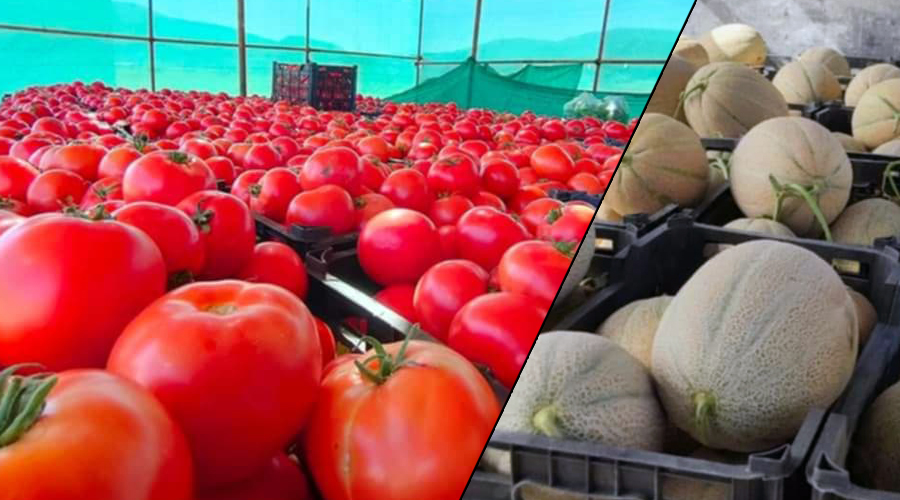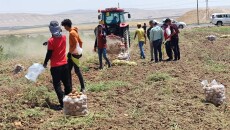The prices of local summer crops have dropped in a district of Sulaymaniyah Northern Province, due to the import of crops, which sparked a protest by farmers in the area.
According to (KirkukNow) follow-ups, the price of one kilogram of watermelon has dropped from (900-1000) dinars to (400-450) dinars, and watermelon dropped from 1100 dinars to 500 dinars, while the price of zucchini dropped by 500 dinars per kilogram.
Zanyar Abdullah, a farmer in Penjwen district of Sulaimaniyah province, told (KirkukNow), "Whenever the prices of local crops rise abnormally, the door to imports is opened through border crossings to reduce prices, but things are different here. Imported crops enter in large quantities and without imposing customs duties," indicating that this is the main reason behind the drop in the prices of local crops.
The Iraqi federal government decided last July to open the door to importing several crops during the month of Muharram and the approaching Arbaeen pilgrimage of Imam Hussein for the Shiites as it expected an increase in demand for some crops to prevent their prices from rising in local markets.
The Ministerial Council for Economy approved opening the door to importing tomato, onion, cucumber, watermelon, and melon crops. This comes at a time when the Kurdistan Regional Government KRG annually bans the import of some crops during the marketing period of local production.
Fuad Sheikh Mohammed, owner of a vegetable and fruit wholesale in Penjwen, told (KirkukNow) that "the crops in Penjwen are sufficient to meet the needs of the markets in the Kurdistan Region and even Iraq, without any need for imports."
He explained that the crops of Penjwen farmers are now sold at half their price compared to the crops of the southern regions of Iraq and some areas in the region.
"We cannot say the farmers are incurring losses, but prices have decreased significantly."
Penjwen has witnessed protests by farmers against importing crops from abroad in recent years. Located north of Sulaymaniyah province near the border with Iran, it is known for its fertile agricultural soil for vegetables and fruits and one of the most important border crossings between the Iraqi Kurdistan Region IKR and Iran.
Despite the challenges posed by climate change and government routine, farming remains a vital sector of Iraq’s economy, providing livelihoods for millions of Iraqis and ensuring part of the country's food security.
About one-eighth of Iraq’s total area is arable, and another one-tenth is permanent pasture. A large proportion of the arable land is in the north and northeast, where rain-fed irrigation dominates and is sufficient to cultivate winter crops, mainly wheat and barley.
This story was produced within the program of Expanding the Role of Women in Covering Environmental Issues, implemented by the (KirkukNow) with the support and funding of the Federal Foreign Office of the Federal Republic of Germany.






